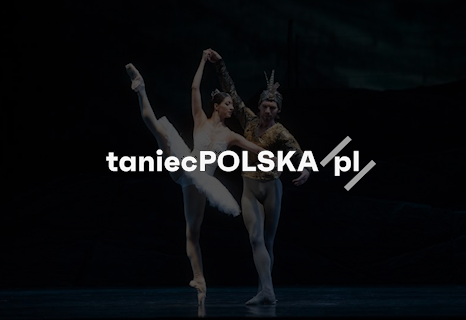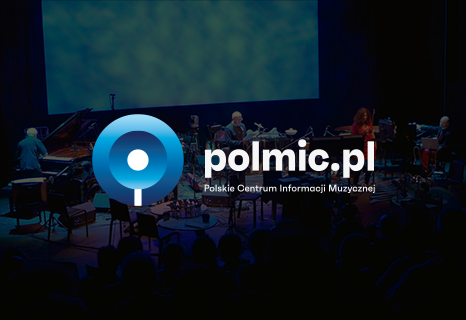Objectives:
Scientific research on neglected areas of Polish music and dance.
Description:
The programme is addressed to Polish and foreign researchers who want to carry out scientific research on neglected and overlooked areas of Polish music or dance in Poland and abroad. Subjects are declared to the Institute directly by the researchers applying to the programme and the effects of their work (musicological works, catalogues of artistic works, databases, reconstructed compositions, sources studies, etc.) will be transmitted to the Institute for further publication.
The readiness to take part in the programme is declared to the Institute directly by the researcher or the group of researchers (maximum: 3 people).
A new priority has been introduced in the 2014/15 edition to support research devoted to the life and work of Tomasz Sikorski. Twenty percent of the 2014/15 edition’s budget shall be earmarked for research devoted to the life and work of Tomasz Sikorski. If they are not used for the original purpose, the funds shall be used to support other projects submitted.
The 4th edition of the programme is held from 1 October 2014 to 31 July 2015. The deadline for submission of applications is 30 June 2014 and the deadline for submission of works (research outputs) is 31 July 2015.
Applications must be sent by e-mail (imit@imit.org) and post (Instytut Muzyki i Tańca, ul. Fredry 8, 00-097 Warsaw, Poland, with a note: Application for the Programme “Blank Pages of Music” (date as postmarked).
Budget:
100 000 PLN
Responsible:
Andrzej Kosowski – Director of Institute of Music and Dance
Joanna Szymajda – Deputy Director of Institute of Music and Dance
Outputs:
Programme launched, during 3rd edition.
From a 32 applications The Selection Board has chosen 11 projects to be carried out in the 4th Edition of the Programme (26 August 2014):
- Znaczenie tradycyjnej kultury i folkloru w kształtowaniu się współczesnego teatru tańca [The role of traditional culture and folklore in the process of shaping contemporary dance theatre] – Anna Banach
- Wydanie krytyczne „Rozprawy o metryczności i rytmiczności języka polskiego” Józefa Elsnera z 1818 r. [An annotated edition of Józef Elsner’s Rozprawa o metryczności i rytmiczności języka polskiego of 1818] – Joanna Dzidowska, Piotr Maculewicz
- do-WOLNOŚĆ-TRADYCJA. Funkcja kompozytora w dziele choreograficznym. Analiza na przykładzie wybranych spektakli tanecznych powstałych w Polsce w okresie 25 lat wolności (1989-2014) [FREEDOM –TRADITION. The role of composer in a choreography. Analysis of selected dance pieces created in Poland in the 25 years of freedom from communism (1989–2014)] – Aleksandra Dziurosz, Aldona Nawrocka-Woźniak
- Działalność artystyczna i pedagogiczna Ireny Dubiskiej [The artistic and teaching work of Irena Dubiska] – Katarzyna Janczewska-Sołomko, Małgorzata Chmurzyńska, Agnieszka Obst-Chwała
- Tradycyjna kultura muzyczna – katalog polskich wydawnictw książkowych i multimedialnych opublikowanych w ostatnim ćwierćwieczu [Traditional music culture – a catalogue of Polish books and multimedia publications released in the last 25 years] – Kaja Maćko-Gieszcz, Barbara Śnieżek, Piotr Dorosz
- Muzyka fortepianowa Tomasza Sikorskiego w świetle teorii Dezintegracji Pozytywnej Kazimierza Dąbrowskiego. Osobowość artysty i jej manifestacja w twórczości kompozytorskiej [Tomasz Sikorski’s piano music in light of Kazimierz Dabrowski’s Theory of Positive Disintegration. Artistic personality and its manifestations in composing] – Grażyna Paciorek-Draus
- Rękopisy muzyczne Tomasza Sikorskiego. Prezentacja-kontekst-interpretacja [Musical manuscripts of Tomasz Sikorski. Presentation – context – interpretation] – Tomasz Piotrowski
- Twórczość operowa Karola Kurpińskiego (1785-1857) [Opera works of Karol Kurpiński (1785–1857)] – Katarzyna Płońska
- Daniel Magnus Gronau (1685?–1747) – realizacja basso continuo, kontrapunktu i kompozycji w osiemnastowiecznym Gdańsku. Na podstawie manuskryptu Ms. Akc. 4125 ze zbiorów PAN Biblioteki Gdańskiej [Daniel Magnus Gronau (1685?–1747) – application of basso continuo, counterpoint and composition in 18th century Gdańsk. Based on manuscript Ms. Akc. 4125 from the Polish Academy of Science’s library in Gdańsk] – Andrzej Szadejko
- Muzyka polska po politycznym przełomie w 1989 roku. Twórcy, dzieła, inspiracje, konteksty [Polish music after the political breakthrough of 1989. Artists, works, inspirations, contexts] – Adrian Thomas
- Ludowe formy kanonicznego śpiewu liturgicznego (cerkiewnego i kościelnego – prawosławnego i katolickiego) na Podlasiu [Folk forms of canonical liturgical singing in Roman and Eastern Orthodox churches in the region of Podlasie] – Tetiana Zachykievich, Julita Charytoniuk
Justifying its choices, the commission emphasised that the all the selected projects:
– aim at documenting and interpreting sources which are becoming less and less accessible over time;
– pertain to undoubtedly neglected areas of Polish dance culture and music;
– tackle varied research problems.
Moreover, the commission stated that:
– all the selected projects are of high academic merit and represent a variety of research topics;
– the research projects are very well-planned and it may be expected that they deliver tangible outcomes in the form and time indicated in the application;
– all the researchers have the necessary experience to carry out the task ahead.
DOCUMENT SET:

